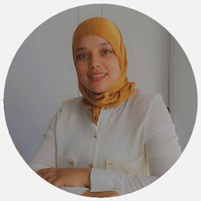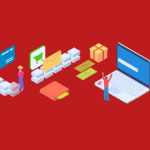Address: Front office : Twin Centre Tower A 6th floor Corner boulevard zerktouni and boulevard El Massira Casablanca Back office : espace ghazwani, Boulevard Ifni, Casablanca
Opening hours :Mon - Fri: 9am-12.30pm and 2pm-6pm Sat: 9am-12pm


Rate this article
6/ (99 votes )
Morocco, the beautiful and diverse country in North Africa, has been attracting people from all over the world. Some visit for its rich culture and history, while others settle down for work or business opportunities. Inevitably, the question arises: Can a foreigner open a bank account in Morocco? The answer is yes! In this blog post, we’ll explore the process, requirements, and benefits of opening a bank account in Morocco as a foreigner.
As a foreigner, you might wonder why you should consider opening a bank account in Morocco. Here are some compelling reasons:
Opening a bank account in Morocco as a foreigner is relatively simple. Here’s a step-by-step guide to help you through the process:
Morocco has a variety of banks, both local and international. Some popular options include:
Tip: Research each bank’s services, fees, and customer reviews before making your decision.
As a foreigner, you’ll need to provide the following documents to open a bank account in Morocco:
Once you have all the required documents, visit your chosen bank in person to complete the account opening process. A bank representative will assist you in filling out the necessary forms and submitting your documents.
After submitting your application, the bank will review your documents and, if approved, activate your account. This process can take anywhere from a few days to a couple of weeks, depending on the bank.
Here are some tips to ensure a smooth account opening process:
In conclusion, opening a bank account in Morocco as a foreigner is not only possible but also straightforward. With a local bank account, you can enjoy the convenience and benefits of managing your finances more effectively while living or working in this vibrant country.
Once you’ve successfully opened your bank account in Morocco, you may want to explore additional services offered by Moroccan banks. These services can help enhance your financial experience in the country. Some of these services include:
Most Moroccan banks offer online and mobile banking services, allowing you to manage your finances from anywhere. These platforms enable you to:
Tip: Download your bank’s mobile app and familiarize yourself with its features to make the most of these services.
Moroccan banks offer a variety of debit and credit cards to cater to different needs. Debit cards are widely accepted in Morocco, making it convenient for you to withdraw cash from ATMs or make purchases at local establishments. Some banks may also offer credit cards with attractive rewards programs or travel benefits.
Foreign exchange services are essential for foreigners living or working in Morocco. Many Moroccan banks offer competitive exchange rates and lower fees compared to currency exchange bureaus. Inquire about your bank’s exchange services to save on conversion costs.
Moroccan banks provide various savings and investment options to help you grow your wealth. These include:
Consult with a financial advisor at your bank to explore the best investment opportunities based on your financial goals and risk tolerance.
Opening a bank account in Morocco as a foreigner is a straightforward process, offering numerous benefits and making your life in the country more comfortable. Once you’ve opened your account, take advantage of the additional services provided by Moroccan banks to make the most of your financial experience. With proper planning and research, you can easily manage your finances while enjoying the incredible experiences Morocco has to offer.
Understanding banking fees and regulations in Morocco is crucial for foreigners looking to manage their finances effectively. Here are some key aspects to consider:
Moroccan banks charge various fees for their services, which can include:
To avoid any surprises, familiarize yourself with your bank’s fee structure and compare it with other banks to ensure you’re getting the best deal. Some banks may offer special packages for foreigners or expats that include reduced fees or additional benefits.
As a foreigner with a bank account in Morocco, it’s essential to understand the tax implications of your financial activities. Moroccan residents are subject to tax on their worldwide income, while non-residents are taxed only on their Moroccan-source income.
Ensure you comply with Moroccan tax laws and, if applicable, the tax regulations of your home country. Consulting a tax professional can help you navigate the complexities of international taxation and avoid potential penalties.
Morocco has some currency restrictions in place, particularly concerning the Moroccan Dirham (MAD). The Dirham is a closed currency, which means it cannot be freely exchanged outside of Morocco. As a foreigner, you may face limitations on the amount of Dirhams you can bring in or take out of the country.
It’s important to be aware of these restrictions and plan your financial activities accordingly. If you need to transfer money internationally, using your bank’s services or a reputable money transfer company can help ensure compliance with currency regulations.
Creating a strong financial network can be beneficial for foreigners looking to establish themselves in Morocco. Here are some steps you can take to build a solid financial foundation:
In summary, opening and maintaining a bank account in Morocco as a foreigner requires understanding the local banking system, fees, regulations, and taxes. By taking the time to research and educate yourself, you can make well-informed financial decisions and enjoy a smoother banking experience in this captivating country.
While Morocco has a stable and reliable banking system, it’s always important to take steps to protect your bank account and financial information. Here are some valuable tips to help you safeguard your finances:
To protect your bank account, ensure that your personal information is secure. Avoid sharing sensitive information, such as your account number, PIN, or passwords, with anyone. Additionally, be cautious when using public Wi-Fi networks, as they may not be secure and can expose your information to hackers.
Regularly reviewing your bank account transactions can help you detect any unauthorized activity or potential fraud. If you notice any suspicious transactions, contact your bank immediately to resolve the issue and protect your account.
When accessing your bank account online or through a mobile app, ensure that you’re using secure channels. Look for the padlock symbol and “https://” in the address bar, which indicates a secure connection. Keep your computer and mobile devices updated with the latest security patches to prevent potential vulnerabilities.
Two-factor authentication (2FA) provides an extra layer of security by requiring you to enter a unique code, usually sent to your mobile phone, in addition to your password when logging into your bank account. Enabling 2FA can significantly reduce the risk of unauthorized access to your account.
When using ATMs in Morocco, choose those located in well-lit and busy areas, preferably within bank premises. Always shield your PIN when entering it and be aware of your surroundings to avoid potential theft or scams.
In case of emergencies, such as losing your bank card or falling victim to fraud, it’s essential to have a plan in place. Keep your bank’s emergency contact information, including international phone numbers, readily available. Additionally, consider having a backup source of funds, such as a secondary bank account or a trusted friend or family member who can assist you in case of emergencies.
In conclusion, opening and managing a bank account in Morocco as a foreigner can be a smooth and hassle-free experience by taking the necessary steps to protect your account and being prepared for emergencies. By maintaining vigilance and following best practices, you can ensure your financial security while enjoying all that Morocco has to offer.
To make the most of your banking experience in Morocco, it’s helpful to understand and adapt to the local banking culture. Here are some insights to help you navigate the Moroccan banking system with ease:
Moroccan banks typically operate from Monday to Friday, with working hours ranging from 8:30 am to 4:30 pm. Some banks may also be open on Saturdays, but with reduced hours. Keep in mind that banks are closed during national and religious holidays, so plan your banking activities accordingly.
Moroccan banks generally offer good customer service, and staff members are often willing to help you with your banking needs. However, service quality may vary depending on the bank and branch location. It’s essential to be patient and polite when interacting with bank staff, as the pace of service may be slower than what you’re accustomed to in your home country.
While French is widely spoken in Moroccan banks, English-speaking staff may not always be readily available. To avoid potential miscommunication, consider learning some basic banking terms in French or Arabic. Alternatively, you can use translation apps or enlist the help of a bilingual friend or colleague when visiting your bank.
Although the use of debit and credit cards is becoming more common in Morocco, it remains a predominantly cash-based society. Many small businesses and local vendors may not accept card payments, so it’s essential to carry enough cash for your daily expenses. Additionally, be prepared for situations where ATMs may be out of service or not easily accessible, particularly in rural areas.
As a foreigner, you may need to establish a credit history in Morocco to access certain financial services, such as loans or mortgages. To build your credit history, consider the following steps:
By understanding the Moroccan banking culture and taking steps to establish your financial presence in the country, you can successfully adapt to the local banking system and enjoy a seamless banking experience as a foreigner in Morocco.
To provide further insights into banking in Morocco for foreigners, we’ve compiled a list of frequently asked questions and their answers:
While some Moroccan banks may allow online account opening, most require foreigners to visit a local branch in person to complete the process. It’s best to research your chosen bank’s specific account opening requirements.
Most international debit and credit cards, such as Visa and Mastercard, are widely accepted in Morocco, particularly in larger cities and tourist areas. However, you may face transaction fees and currency conversion charges when using your foreign card. It’s recommended to have a Moroccan bank account and a local debit or credit card for more cost-effective financial transactions.
To transfer money internationally from your Moroccan bank account, you can use your bank’s wire transfer services or opt for a reputable money transfer company, such as Western Union or MoneyGram. Keep in mind that there may be fees and exchange rate margins associated with international money transfers.
The official currency of Morocco is the Moroccan Dirham (MAD), which is subdivided into 100 centimes.
Yes, online and mobile banking in Morocco is generally safe and secure. However, it’s crucial to take necessary precautions, such as using strong passwords, enabling two-factor authentication, and avoiding public Wi-Fi networks when accessing your bank account.
Morocco has currency restrictions in place, which may limit the amount of money you can transfer out of the country. Consult your bank and be aware of the country’s currency regulations to ensure compliance when transferring funds internationally.
By understanding the answers to these frequently asked questions, you can further enhance your banking experience as a foreigner in Morocco and make well-informed financial decisions.
Take the first step today and get your free consultation now! Unlock the potential for success for your new business in Morocco.
Request a free quote now !



